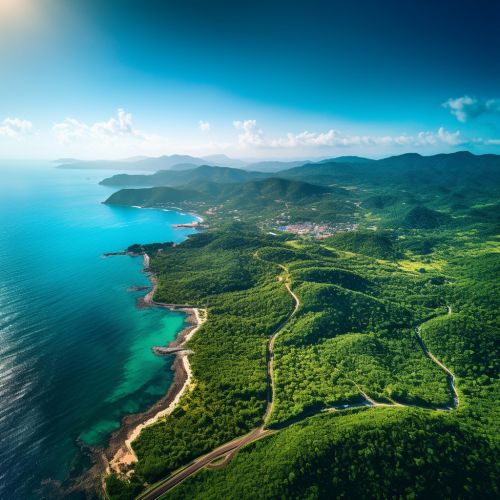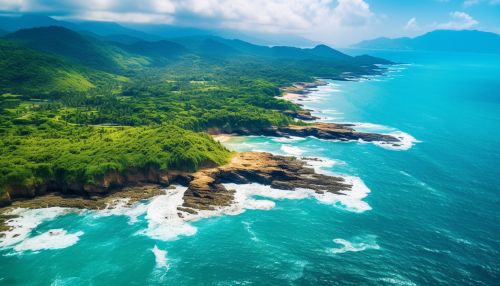Puerto Rican
Overview
Puerto Rican refers to the people, culture, and aspects related to the island of Puerto Rico. Puerto Rico, officially known as the Commonwealth of Puerto Rico, is an unincorporated territory of the United States located in the northeastern Caribbean Sea. The term "Puerto Rican" encompasses a wide range of identities, experiences, and histories due to the island's complex political status and rich cultural heritage.


History
The history of Puerto Rico begins with the story of the Taíno people, who inhabited the island for centuries before the arrival of Christopher Columbus in 1493. The island was then colonized by Spain for over four centuries, shaping its cultural and social landscape. The Spanish influence is still evident in the Puerto Rican culture, language, and traditions. The island was ceded to the United States in 1898 following the Spanish-American War, marking a new chapter in its history.
Culture
Puerto Rican culture is a unique blend of indigenous Taíno, Spanish, African, and American influences. This fusion is evident in the island's music, cuisine, literature, and arts. The island's culture is also characterized by a strong sense of national identity despite its political status as a U.S. territory.
Music and Dance
Music and dance are integral parts of Puerto Rican culture. The island has produced a variety of music genres, including salsa, reggaeton, and bombay plena. These genres have gained international recognition and have significantly influenced global music trends.
Cuisine
Puerto Rican cuisine, known as "cocina criolla," is a unique blend of Taíno, Spanish, African, and American influences. Staple ingredients include plantains, rice, beans, and a variety of meats. Popular dishes include mofongo, arroz con gandules, and lechón.
Literature
Puerto Rican literature is rich and varied, reflecting the island's history, culture, and identity. It includes works from renowned authors such as Julia de Burgos, Rosario Ferré, and Luis Rafael Sánchez, who have contributed significantly to Latin American literature.
Politics
Puerto Rico's political status as an unincorporated territory of the United States has been a subject of ongoing debate. The island's residents are U.S. citizens, but they cannot vote in presidential elections unless they reside in one of the 50 states. This unique political situation has shaped the island's governance, economy, and identity.
Economy
Puerto Rico's economy is primarily driven by manufacturing, particularly pharmaceuticals, textiles, petrochemicals, and electronics. The service sector, particularly tourism, is also a significant contributor to the island's economy. However, the island has faced economic challenges, including high unemployment rates and public debt.
Demographics
Puerto Rico has a diverse population, with a mix of races and ethnicities. The majority of the population identifies as white, followed by those who identify as black or African American. There is also a significant mixed-race population. The official languages are Spanish and English, with Spanish being the most widely spoken.
